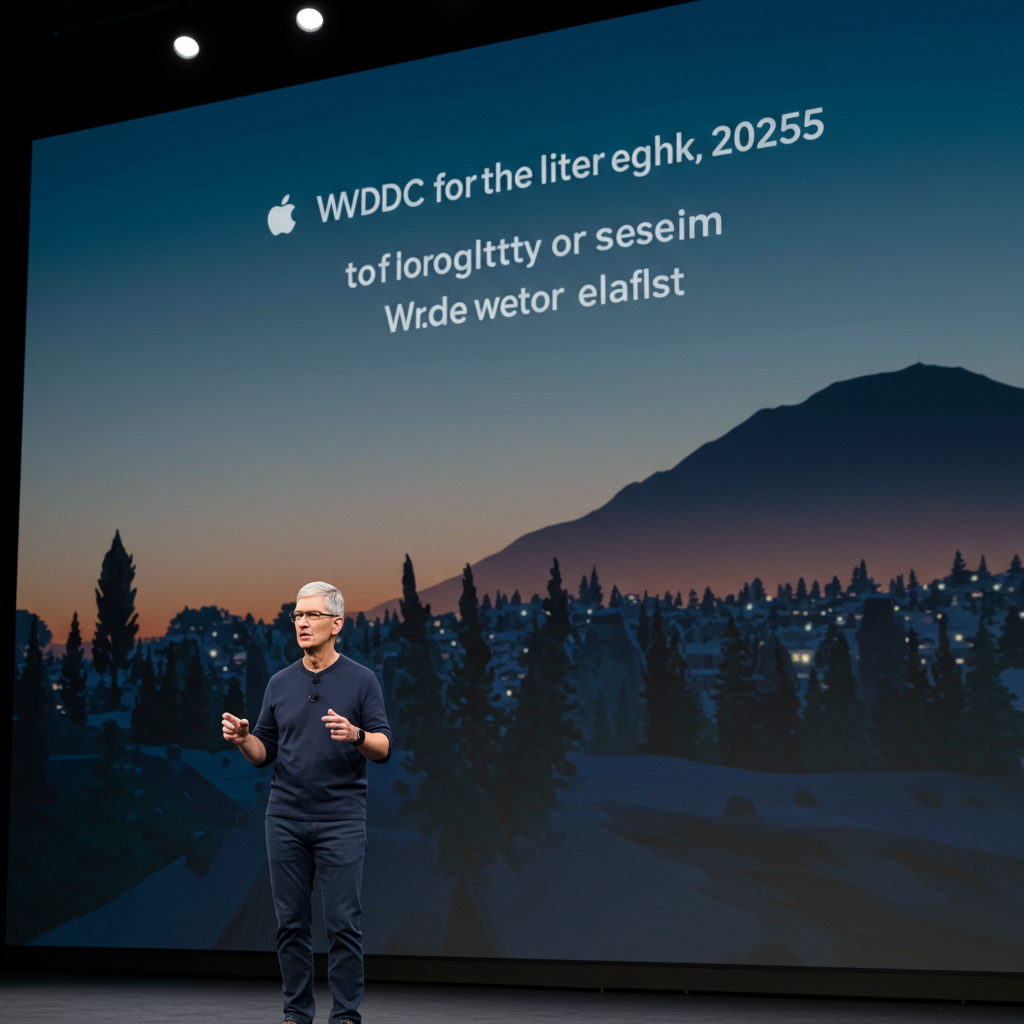Welcome back to our weekly recap of the biggest stories shaping the tech world! This past week delivered major announcements from Apple’s developer conference, significant strides in AI, crucial updates in security and privacy, and shifts in social platforms. Let’s dive into the highlights, starting with the highly anticipated Worldwide Developers Conference.
Apple’s WWDC 2025 Highlights
The week kicked off with Apple’s Worldwide Developers Conference (WWDC 2025). The event unveiled a newly designed iOS 26, showcasing fresh features across Apple’s product ecosystem. This year’s conference carried considerable weight, with pressure on Apple to demonstrate progress, particularly in the realm of AI where it is seen as lagging. The company also aimed to strengthen its relationship with developers amidst ongoing legal challenges surrounding its App Store policies.
While the focus was on software, broader Apple news emerged. A recent court ruling in the Epic Games v. Apple legal battle found Apple in “willful violation” of a prior injunction against anticompetitive practices, potentially paving the way for Fortnite’s return to iPhones sooner rather than later. Reports also suggested that Apple faced substantial tariff costs, though CEO Tim Cook indicated product prices wouldn’t rise “yet.”
Looking ahead, iPadOS 26 was previewed with updates designed to make the 15-year-old device a more viable option for a full day’s work, addressing longstanding productivity limitations. Complementing this, a dedicated WhatsApp app for iPad has rolled out, integrating with iPadOS multitasking features like Stage Manager and Split View.
Beyond Apple: Key Tech News
Beyond Cupertino, other major tech players made notable moves:
Google rolled out Android 16 to Pixel phones, enhancing user experience with features like group chat in RCS messaging, AI-powered edit suggestions in Google Photos, and support for corporate badges in Google Wallet.
Tesla’s long-promised driverless vehicles are apparently nearing public debut. Elon Musk announced plans to offer public rides in Austin, Texas, starting June 22.
In finance, Chime made its anticipated public debut, successfully raising $864 million in its IPO. Meanwhile, writing assistant company Grammarly secured a significant $1 billion investment from General Catalyst.
The Evolving AI Landscape
Artificial intelligence continued its rapid evolution this week with new model releases, applications, and partnerships:
OpenAI released o3-pro, an updated version of its o3 reasoning model. Unlike traditional AI, reasoning models tackle problems step-by-step, boosting reliability in complex fields like math and coding. However, the company also noted that its next planned open model release would be delayed until later this summer. OpenAI also recently had to roll back an update to its GPT-4o model after users reported strange, overly agreeable behavior.
The trend of AI-first browsers gained momentum. The Browser Company, which previously hinted at winding down its Arc browser, is focusing on developing a new AI browser called Dia. They join others like Opera and Perplexity, which also have AI browser projects in the works (Perplexity’s is reportedly codenamed Comet).
AI is being integrated into daily tools. Gmail users will now receive automatic email summaries powered by Gemini AI by default, a change requiring users to opt out if they prefer not to use the feature. Amazon’s Alexa+ is also being developed for more natural conversations and potentially “agentic abilities” to use third-party apps, with 100,000 users already having access.
New AI tools for specific tasks are emerging, such as Perplexity Labs, which aims to automate research by generating reports and visualizations for Pro subscribers.
Major partnerships are forming, including Mattel and OpenAI teaming up to create an “AI-powered product” while giving Mattel staff access to OpenAI tools for product development.
Globally, AI model development continues, with Alibaba introducing its Qwen3 hybrid AI models, claiming they outperform competitors, though they aren’t publicly available yet.
Concerns about AI’s impact persist. A World Economic Forum survey indicated that 40% of employers plan staff cuts in roles automatable by AI. Furthermore, the rise of chatbots directly answering queries, sometimes using content scraped without consent, is negatively impacting publishers reliant on web traffic. Even the use of AI for malicious purposes was highlighted, such as potential AI voice impersonation in connection with a reported phone hack targeting a White House official.
Security & Privacy Watch
Security threats and privacy concerns were prominent in the week’s news:
U.S. grocery distributor United Natural Foods (UNFI) confirmed a cyberattack that took many external systems offline, including those for suppliers and customers. Whole Foods was among the victims, warning staff of disrupted delivery schedules and product availability.
Privacy issues with Meta AI were revealed when a reporter discovered the app was publicly sharing user queries, with settings tied to public Instagram accounts without clear user notification.
Data breaches continue to be a risk. LexisNexis Risk Solutions reported a breach affecting over 364,000 people, with sensitive personal data stolen from a GitHub account.
An Indian judge ordered a nationwide block of the encrypted email provider Proton Mail following a legal complaint alleging the service was used to send abusive emails.
Social Platforms in Focus
Social platforms saw both criticism and new developments:
The platform Bluesky faced a wave of public critique regarding its perceived slowing growth, characterization as a left-leaning echo chamber, and user tone. However, analysis suggests these criticisms often miss the bigger picture. The core value lies not just in the default Bluesky app, but in its underlying AT Proto open protocol, which allows for a diverse ecosystem of apps and custom feeds. This enables communities like Blacksky for Black users or Gander Social for Canadians, and tools like Graze or Surf for curated feeds, demonstrating Bluesky is building a broader, interconnected social network.
X (formerly Twitter) is rolling out a new direct messaging feature, dubbed XChat, to beta testers. This more robust system, expected to offer enhanced group chats, end-to-end encryption, and a vanishing mode, aligns with Elon Musk’s long-held ambition to integrate a comprehensive messaging service akin to Signal directly into the platform.
That wraps up a busy week in tech! We’ll be back next week to cover the latest developments.




